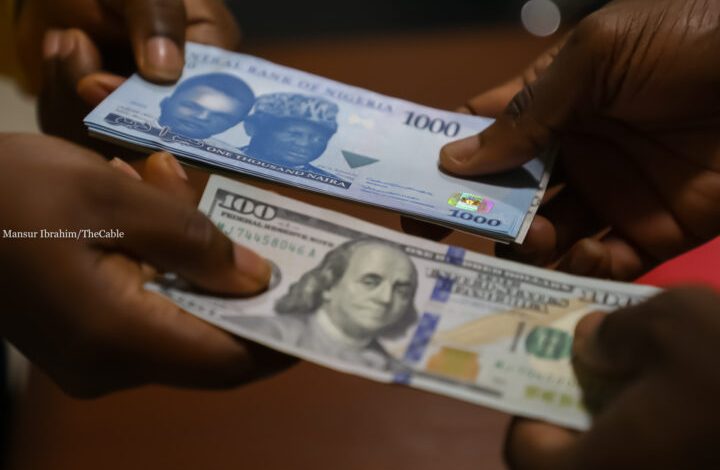
The Nigerian naira has continued its downward spiral against the United States dollar in the official foreign exchange market, despite recent interventions by the Central Bank of Nigeria (CBN).
As of Wednesday, August 28, 2024, the naira traded at an alarming N1,606 per dollar in the Nigerian Autonomous Foreign Exchange Market (NAFEM), marking a significant depreciation from the previous day.
According to data from FMDQ Securities, the naira’s latest exchange rate represents a 0.86% decline, equivalent to N28.34, from Tuesday’s closing price of N1,594.27 per dollar.
Despite the Central Bank’s efforts to bolster the naira through various policy measures and market interventions, the currency’s value has continued to fall.
The latest depreciation indicates the complexities of the foreign exchange market in Nigeria, where demand for dollars often outpaces supply, particularly during periods of heightened economic activity.
The naira’s fall is not limited to its exchange rate with the dollar. In the spot market, the currency also weakened against the British pound and the euro. The naira dropped by N11.87 against the pound sterling, closing at N2,116.69/£1, compared to the previous day’s rate of N2,104.82/£1.
Similarly, it declined by N5.46 against the euro, settling at N1,782.62/€1, down from N1,777.16/€1 recorded on Tuesday.
The depreciation of the naira is attributed to the ongoing struggles of the Central Bank to manage the high demand for foreign exchange.
Seasonal factors, coupled with the activities of importers and multinational corporations seeking dollars for their operations, have put significant pressure on the naira.
Despite the CBN’s interventions, the foreign exchange market remains volatile, with the value of FX transactions seeing a slight improvement.
On Wednesday, the value of transactions increased by 5.1%, or $4 million, to $160.94 million from $156.94 million in the previous session. However, this uptick in transaction value was not enough to prevent the naira from sliding further.
In the parallel market, often referred to as the black market, the naira remained stable against the dollar, trading at N1,615/$1.
Financial experts have expressed concern over the naira’s trajectory, calling for more comprehensive measures to address the underlying issues affecting the foreign exchange market.
These include diversifying the economy to reduce dependence on imports, increasing foreign exchange reserves, and implementing policies that attract foreign investment.
